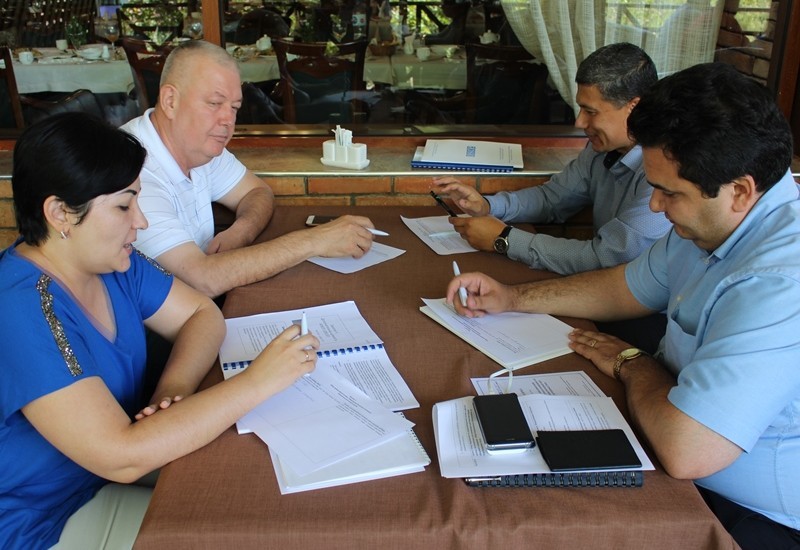- 8
- Aug
Training on the ratification and implementation of the Optional Protocol to the UN Convention against Torture in Uzbekistan
August 6-8, 2018, the National Human Rights Centre of the Republic of Uzbekistan together with the OSCE Project Co-ordinator in Uzbekistan conducted three-day workshop on the possibility of the ratification of the Optional Protocol to the Convention against Torture and other Cruel, Inhuman or Degrading Treatment or Punishment (OPCAT) in Uzbekistan.
The main goal of the event was to study the importance of the Optional Protocol and the activities of the Subcommittee against Torture, as well as to learn foreign practices on implementing the provisions of the Optional Protocol.
The training was attended by representatives of the Oliy Majlis (Parliament), state bodies, courts and law enforcement bodies, National Human Rights institutions, the scientific community and civil society institutions.
The following international experts facilitated the workshop: Debra Long (UK), research fellow at the Human Rights Implementation Centre within the Law School at the University of Bristol and Mari Amos (Estonia), member of the expert panel of the UN Subcommittee on Torture and other Cruel, Inhuman or Degrading Treatment or Punishment.
During the training, participants were informed about Uzbekistan's experience in implementing specific measures aimed at preventing and eradicating torture and other inhuman or degrading treatment and punishment. In particular, the Decree of the President of the Republic of Uzbekistan “On Additional Measures on Strengthening the Guarantees of Citizens' Rights and Freedoms in Forensic Investigations” of November 30, 2017, which strictly prohibits torture, physical and psychological pressure and other cruel, inhuman or degrading dignity types of treatment in relation to participants of criminal proceedings or their close relatives, in criminal cases, it is strictly prohibited to use any data obtained illegally, in particular, audio and video evidence.
The participants also emphasized the importance of the Law of the Republic of Uzbekistan “On Amendments and Additions to Certain Legislative Acts of the Republic of Uzbekistan in Connection with Taking Measures on Strengthening the Guarantees of Citizens' Rights and Freedoms in Forensic Investigations” of April 4, 2018, which provides increased liability for the use of torture.
During the training, the participants were acquainted with the provisions of the Optional Protocol, the activities of the Subcommittee against Torture, the models of the National Preventive Mechanism, etc.
Participants in the training discussed issues related to the mechanism for ratifying the Optional Protocol, the conditions for the creation of a National Preventive Mechanism and its models, the work of the Subcommittee against Torture, and the experience of countries that have ratified the document.
Participants were especially interested in the activities of the Sub-Committee against Torture in the admission of the practice to the institutions to be visited by the Subcommittee, the annual schedule of the Subcommittee on visits to countries, the procedure for determining visits to places in the country, the relationship of the Subcommittee with other UN bodies, the procedure for determining the list of site visits, duration and program of country visits.
The exchange of opinions took place at the training regarding the advantages of models of national preventive mechanism, the preparatory process of its creation.
With regard to the creation of a National Preventive Mechanism, participants were acquainted with all of its models: the model of the ombudsman, model of “ombudsman+”, the creation of a new body and the cooperation of several bodies, noting that the most recent model is the most ineffective because it lacks a coordinating authority (Great Britain, more than 20 different organizations).
According to the outcomes of the training, the participants recommended the implementation of a number of measures on further strengthening measures aimed at preventing torture and creating a national preventive mechanism.
